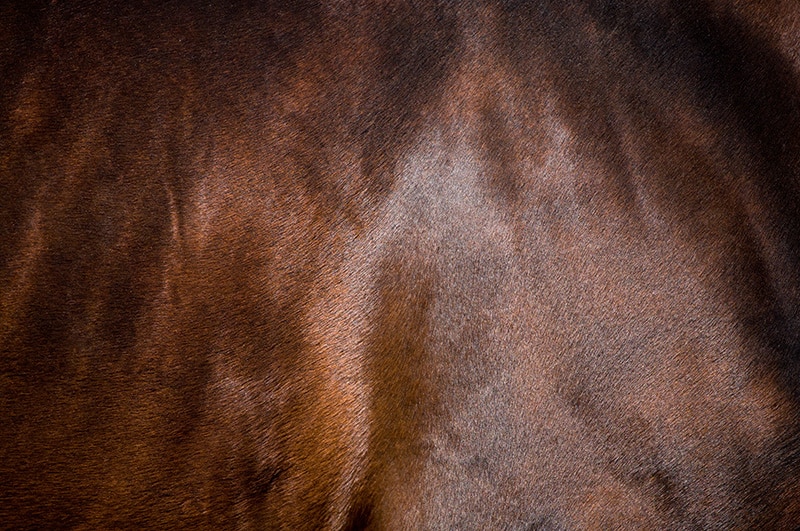HORSE
AGRO

Biotin is a B vitamin and plays a crucial role in the health of horses’ coat and hooves. Biotin for horses has several functions within the horse’s body. As a coenzyme, it contributes to various metabolic processes within the horse’s body. For example, it supports the metabolism of carbohydrates, fats and proteins.
In general, adding vitamins to your horse’s ration is important to follow the correct dosage. However, it is difficult to determine this exactly in the case of biotin. This is because it is not yet clear how much biotin a horse produces itself. Nor do we know (partly because of this) the minimum amount of biotin a horse needs. But, we do know that biotin is one of the few vitamins where a megadose has a positive effect. For example, research has shown that 20,000 mcg (20 mg) of biotin per day significantly improves hoof quality. What we also know is that a surplus of biotin is not a risk or toxic, as a surplus is simply excreted by a horse.
A hoof takes months to grow from the crown rim to the supporting surface. For this reason, it may therefore take some time before you see any improvement in hoof quality after feeding your horse the mega dose of biotin. When you feed the increased dose of biotin to your horse, you will notice the positive effects after about 6-9 months. In addition, it is important to feed biotin consistently during this period. This is because research has shown that when you stop or reduce the dose, the positive effects stop.
Although it is not clear how much, we do know that horses themselves (or rather the microbiota) make bine. This happens during fermentation of roughage in the blind and colon. To make things even more uncertain, it is unclear how well the biotin produced is absorbed in the blind and colon. Especially with disturbances in the blind and colon, such as an imbalance in microbiota. However, we do know that biotin from feed may have a better chance of being absorbed by the body compared to biotin produced by the microbiota.
Biotin is naturally present in several products, including alfalfa. In addition, biotin can also be added to a premix. This is a mix of vitamins and minerals that is added to supplements and feeds. In this way, biotin can also be added to supplements, balancers and concentrates. However, biotin levels in most horse feeds are generally low due to the lack of clarity about the minimum biotin requirement in horses.
We recommend sticking to the 20,000 mcg (20mg) for optimal effectiveness of biotin. The best way to ensure your horse gets this daily is to check the label of your horse’s feed.
With so many different options on the market, choosing the right horse feed for your horse can be challenging. We give you some tips to consider when it comes to biotin:
Biotin is invaluable for equine health, with demonstrable benefits for coat and hooves. Although the exact dosage is ambiguous, studies show that a daily dose of 20,000 mcg (20 mg) produces significant hoof improvements. The biotin produced by the microbiota in the blind and large intestine and the lack of clarity about its absorption add to the complexity of recommended levels. For optimal biotin effectiveness, it is recommended to choose feeds with balanced levels, such as Hartog Essential and Hartog Comfort.
Receive the latest offers, exclusive content and news from Hartog Family Farms.

Grasdrogerij Hartog B.V.
Mijnsherenweg 7
1658 CA Lambertschaag
0229 – 58 12 32
info@hartog.eu